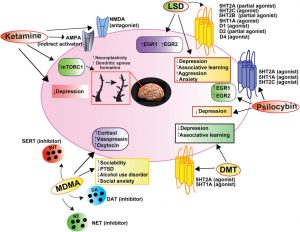Improve Chronic Fatigue with Mind-Body Practices
By John M. de Castro, Ph.D.
“Mindfulness can be a powerful tool for overcoming fatigue. It allows you to recognize when fatigue is the cause of a current problem, and it offers you an intuition-based problem-solving ability. Furthermore, regular mindfulness practice is itself a source of energy.” – Ronya Banks
Myalgic encephalomyelitis/Chronic Fatigue Syndrome (CFS) occurs in about 0.2% of the population. It produces a profound, prolonged, and debilitating tiredness that is not corrected by rest. When severe, it can produce a chronic and extreme tiredness, so severe that sufferers can become bed-bound or need to use a wheel-chair. It produces muscle pain, brain fog and dizziness, poor memory, disturbed sleep and trouble with digestion.
Unfortunately, there are no known cures for CFS. The usual treatments for fatigue are targeted at symptom relief and include exercise and drugs. As an alternative to these traditional treatments, mindfulness training has been shown to reduce fatigue. The evidence has been accumulating. So, it makes sense to review and summarize what has been learned.
In today’s Research News article “Systematic Review of Mind-Body Interventions to Treat Myalgic Encephalomyelitis/Chronic Fatigue Syndrome.” (See summary below or view the full text of the study at: https://www.ncbi.nlm.nih.gov/pmc/articles/PMC8305555/ ) Ardestani and colleagues review and summarize the published research studies of the effectiveness of mindfulness training as a treatment for Chronic Fatigue Syndrome (CFS).
They identified 12 published research studies. Thee report that the published research found that mindfulness training produced significant reductions in mental and physical fatigue, anxiety, and depression and a significant increase in quality of life. Hence, the published research demonstrates that mindfulness training is an effective treatment to improve the mental and physical health of patients with Chronic Fatigue Syndrome (CFS). It is safe and effective and therefore should be recommended for patients with CFS.
So, improve chronic fatigue with mind-body practices.
“mindfulness certainly shows promise as an effective approach to assist with overcoming chronic fatigue syndrome.” – Mindful Way
CMCS – Center for Mindfulness and Contemplative Studies
This and other Contemplative Studies posts are also available on Google+ https://plus.google.com/106784388191201299496/posts and on Twitter @MindfulResearch
Study Summary
Khanpour Ardestani, S., Karkhaneh, M., Stein, E., Punja, S., Junqueira, D. R., Kuzmyn, T., Pearson, M., Smith, L., Olson, K., & Vohra, S. (2021). Systematic Review of Mind-Body Interventions to Treat Myalgic Encephalomyelitis/Chronic Fatigue Syndrome. Medicina (Kaunas, Lithuania), 57(7), 652. https://doi.org/10.3390/medicina57070652
Abstract
Background and Objectives: Myalgic Encephalomyelitis/Chronic Fatigue Syndrome (ME/CFS) is a chronic condition distinguished by disabling fatigue associated with post-exertional malaise, as well as changes to sleep, autonomic functioning, and cognition. Mind-body interventions (MBIs) utilize the ongoing interaction between the mind and body to improve health and wellbeing. Purpose: To systematically review studies using MBIs for the treatment of ME/CFS symptoms. Materials and Methods: MEDLINE, EMBASE, CINAHL, PsycINFO, and Cochrane CENTRAL were searched (inception to September 2020). Interventional studies on adults diagnosed with ME/CFS, using one of the MBIs in comparison with any placebo, standard of care treatment or waitlist control, and measuring outcomes relevant to the signs and symptoms of ME/CFS and quality of life were assessed for inclusion. Characteristics and findings of the included studies were summarized using a descriptive approach. Results: 12 out of 382 retrieved references were included. Seven studies were randomized controlled trials (RCTs) with one including three reports (1 RCT, 2 single-arms); others were single-arm trials. Interventions included mindfulness-based stress reduction, mindfulness-based cognitive therapy, relaxation, Qigong, cognitive-behavioral stress management, acceptance and commitment therapy and isometric yoga. The outcomes measured most often were fatigue severity, anxiety/depression, and quality of life. Fatigue severity and symptoms of anxiety/depression were improved in nine and eight studies respectively, and three studies found that MBIs improved quality of life. Conclusions: Fatigue severity, anxiety/depression and physical and mental functioning were shown to be improved in patients receiving MBIs. However, small sample sizes, heterogeneous diagnostic criteria, and a high risk of bias may challenge this result. Further research using standardized outcomes would help advance the field.
https://www.ncbi.nlm.nih.gov/pmc/articles/PMC8305555/









